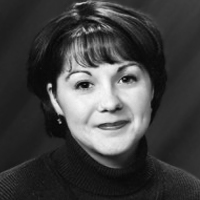Dr. Pamela Roberts: The first piece that I will discussing will be risk factors for readmission. I would first like to review some of the literature.
Readmission Literature
MEDPAC Report (Medicare Payment Advisory Commission)
In the acute care hospital, 17.6% of hospital admissions result in readmissions within 30 days and 6% of the readmissions are within seven days. This results in approximately 15 billion in spending. This reference is from the MEDPAC report from 2007, and continues to be a current issue within the Medicare system.
Dartmouth Atlas Report
The Dartmouth Atlas Report talked about the "striking variation in 30-day readmission rates across hospital referral regions and academic medical centers." One of the issues noted was that "early follow-up with clinicians fell short in most regions of the country and at most hospitals." This is important because this can help to prevent readmissions.
Blum, 2013
There has been a small decline in risk adjusted readmission rates. It is roughly about 0.7% from 2009 to 2001. A more recent report from 2013, by CMS, shows a continued decrease in readmissions.
New England Journal of Medicine- Jencks, Williams and Coleman 2009
Rehospitalizations are readmissions for the Medicare Fee-for-Service program. It is interesting to note that half, according to this article by Jenks et al., never saw an outpatient physician, and 70% of surgical readmissions were because of chronic conditions.
YNHHSC/CORE (Center for Outcomes Research and Evaluation), 2007
Source: 2007-2008 development data, volume 25; Dec. 2011 YNHHSC/CORE (Center for Outcomes Research and Evaluation)
Figure 1. 30-day unadjusted readmission rate (%). View enlarged version (PDF)
Figure 1 shows looks at the readmission rates over 30 days.
CMS, 2009
Nearly one in five patients is discharged from the hospital and returns within 30 days. Readmission rates vary accordingly according to demographic, social, and disease-related characteristics. There is quite a bit of variability over what occurs for readmissions.
Jordan Rau, 2013, KHN Staff Writer
This article states that Medicare identified 2,225 hospitals that will have payments reduced for a year. This began on October 1st, 2012. Eighteen of these hospitals lost 2% of every payment, which was the maximum possible, and others lost 1% of every payment.

